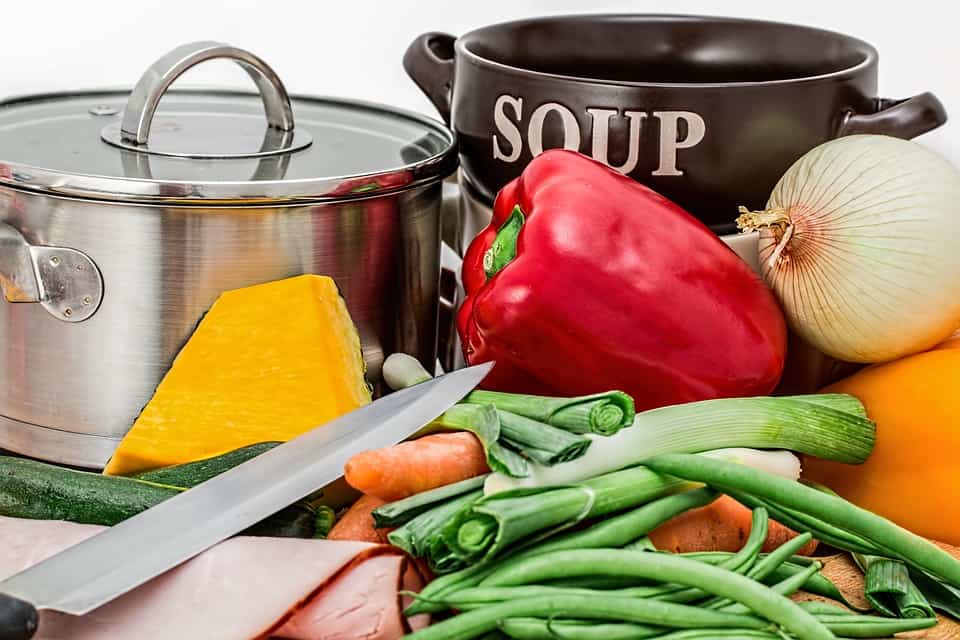Introduction
Gastric sleeve surgery or sleeve gastrectomy is a popular weight loss surgery that involves reducing the size of the stomach. This procedure helps patients lose weight by limiting the amount of food that they can consume. After surgery, patients are advised to follow a strict diet plan to ensure that they get the nutrients they need without overeating. However, many patients who undergo gastric sleeve surgery still experience hunger pangs even when they have eaten enough. This article will explore the causes of hunger after gastric sleeve surgery and provide tips on how to manage it.
Causes of Hunger After Gastric Sleeve
There are several reasons why patients experience hunger after gastric sleeve surgery. One of the most common reasons is that the stomach is not completely emptying. This can happen if the patient eats too quickly or doesn’t chew their food properly. When food sits in the stomach, it can trigger hunger signals, making the patient feel hungry even though they have eaten enough.
Another reason for hunger after gastric sleeve surgery is hormonal changes. The stomach produces a hormone called ghrelin, which is responsible for stimulating appetite. After gastric sleeve surgery, the stomach produces less ghrelin, which can lead to reduced hunger. However, the body can adapt to the changes by producing more ghrelin, leading to hunger pangs.
Managing Hunger After Gastric Sleeve
Managing hunger after gastric sleeve surgery can be challenging, but it is possible. Here are some tips on how to manage hunger after gastric sleeve surgery:
Eat slowly and chew food properly
Eating slowly and chewing food properly can help to ensure that the stomach empties properly. This can help to reduce hunger signals and prevent overeating. Patients should take small bites and chew their food thoroughly before swallowing.
Eat nutrient-dense foods
Patients should focus on eating nutrient-dense foods that are high in protein, fiber, and healthy fats. These foods can help to keep them feeling full for longer and reduce hunger pangs.
Avoid sugary and processed foods
Sugary and processed foods can cause blood sugar levels to spike, leading to hunger pangs and cravings. Patients should avoid these types of foods and instead focus on whole, unprocessed foods.
Stay hydrated
Drinking plenty of water throughout the day can help to reduce hunger pangs. Patients should aim to drink at least eight glasses of water a day.
Avoid snacking
Snacking can lead to overeating and can trigger hunger signals. Patients should try to avoid snacking and instead focus on eating three healthy, balanced meals a day.
Conclusion
Hunger after gastric sleeve surgery is a common problem that many patients experience. However, with the right strategies, it is possible to manage hunger and maintain a healthy weight. Eating slowly, choosing nutrient-dense foods, avoiding sugary and processed foods, staying hydrated, and avoiding snacking are all effective ways to manage hunger after gastric sleeve surgery. Patients should also consult with their doctor or dietitian for personalized advice on managing hunger and maintaining a healthy weight after surgery.
Top Inquiries Concerning Hunger After Gastric Sleeve
What causes hunger after gastric sleeve surgery?
After a gastric sleeve surgery, it is common to experience hunger pangs. This is because the procedure involves the removal of a portion of the stomach that produces ghrelin, the hormone that is responsible for appetite stimulation. However, the remaining part of the stomach can still produce ghrelin, leading to hunger sensations.
The most important information to take note of are:
1. Hunger after gastric sleeve surgery is normal and expected.
2. The sensation of hunger may be caused by the remaining part of the stomach producing ghrelin.
3. The hunger sensation should diminish as the body adjusts to the new stomach size.
How can I manage hunger after gastric sleeve surgery?
Managing hunger after gastric sleeve surgery can be challenging, but there are some things you can do to help. You should focus on eating small, frequent meals throughout the day, instead of three large meals. You should also eat slowly and chew your food thoroughly, which helps you feel fuller for longer.
The most important information to take note of are:
1. Eating small, frequent meals can help manage hunger.
2. Chewing your food thoroughly can help you feel fuller for longer.
3. Avoiding sugary and processed foods can help reduce hunger sensations.
Can I use appetite suppressants after gastric sleeve surgery?
It is not recommended to use appetite suppressants after gastric sleeve surgery, unless specifically instructed by your doctor. This is because these medications can have adverse effects on your body, especially when taken after a major surgery. Additionally, appetite suppressants can interfere with your body’s ability to absorb the nutrients it needs.
The most important information to take note of are:
1. Using appetite suppressants after gastric sleeve surgery is not recommended.
2. These medications can have adverse effects on the body.
3. Appetite suppressants can interfere with nutrient absorption.
How long does hunger last after gastric sleeve surgery?
The length of time that hunger lasts after gastric sleeve surgery can vary from person to person. However, most people experience hunger sensations for the first few weeks after surgery. Over time, the body adjusts to the new stomach size and the sensation of hunger should diminish.
The most important information to take note of are:
1. The length of time that hunger lasts after gastric sleeve surgery can vary.
2. Most people experience hunger sensations for the first few weeks after surgery.
3. The sensation of hunger should diminish over time as the body adjusts to the new stomach size.
What should I do if I am still hungry after eating?
If you are still hungry after eating, there are a few things you can do. You should first ensure that you are eating slowly and chewing your food thoroughly. You should also review your diet to ensure that you are consuming enough protein and fiber, as these nutrients can help you feel fuller for longer. Additionally, you can try drinking water or other low-calorie beverages to help reduce hunger sensations.
The most important information to take note of are:
1. Eating slowly and chewing your food thoroughly can help reduce hunger sensations.
2. Consuming enough protein and fiber can help you feel fuller for longer.
3. Drinking water or other low-calorie beverages can also help reduce hunger sensations.
Misunderstandings Concerning Hunger After Gastric Sleeve
Introduction
Gastric sleeve surgery is an effective weight-loss procedure that helps people achieve significant weight loss and improve their overall health. However, there are several misconceptions about hunger after gastric sleeve surgery. Hunger is a common sensation that people experience after the procedure, but there are many myths about its intensity, duration, and impact on weight loss.
Myth 1: Hunger is unbearable after gastric sleeve surgery
One of the most common misconceptions about hunger after gastric sleeve surgery is that it is unbearable. While it is true that some people may experience significant hunger pangs in the first few weeks after surgery, this sensation usually subsides after a few days. Hunger is a normal physiological response to a lack of food, and it is not uncommon for people to feel hungry after a meal, even if they have had gastric sleeve surgery.
Myth 2: Hunger is a sign that the surgery has failed
Another common misconception about hunger after gastric sleeve surgery is that it is a sign that the surgery has failed. This is not true. Hunger is a natural sensation that the body experiences when it needs food. Gastric sleeve surgery is designed to reduce the size of the stomach and limit the amount of food that a person can eat. However, it does not completely eliminate hunger.
Myth 3: Hunger after gastric sleeve surgery leads to overeating
Some people believe that hunger after gastric sleeve surgery leads to overeating, which can hinder weight loss. This is not necessarily true. While hunger can be challenging to manage, it does not automatically lead to overeating. People who have had gastric sleeve surgery are encouraged to eat small, frequent meals that are high in protein and low in fat and sugar. By following these guidelines, they can manage their hunger and maintain a healthy weight.
Myth 4: Hunger after gastric sleeve surgery lasts forever
Another common misconception about hunger after gastric sleeve surgery is that it lasts forever. This is not true. In most cases, hunger subsides after a few days or weeks as the body adjusts to the new stomach size. People who have had gastric sleeve surgery can also take steps to manage their hunger, such as eating small, frequent meals, drinking plenty of water, and avoiding high-calorie foods.
Myth 5: Hunger is the only reason people gain weight after gastric sleeve surgery
Finally, some people believe that hunger is the only reason people gain weight after gastric sleeve surgery. This is not true. While hunger can be a factor, there are many other reasons why people may gain weight after gastric sleeve surgery, such as eating high-calorie foods, not exercising enough, or not following the recommended diet and lifestyle changes. Hunger is just one factor that people need to manage in order to achieve and maintain a healthy weight after gastric sleeve surgery.
Conclusion
In conclusion, there are many misconceptions about hunger after gastric sleeve surgery. While hunger is a common sensation that people experience after the procedure, it is not unbearable, a sign that the surgery has failed, or the only reason people gain weight after the procedure. By understanding these misconceptions and taking steps to manage hunger, people can achieve and maintain a healthy weight after gastric sleeve surgery.
Hunger After Gastric Sleeve
#language #model #dont #personal #experiences #feelings #provide #information #hunger #gastric #sleeve #surgery

